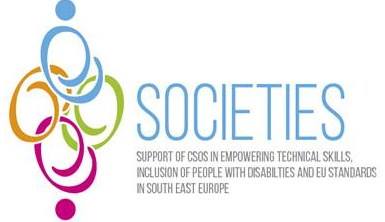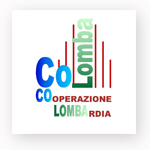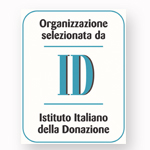


TERMS OF REFERENCES
For implementing two day trainings on management of social inclusion initiatives” and on “Analysis of the impact of social initiatives” and consultations
SOCIETIES – SUPPORT OF CSOS IN EMPOWERING TECHNICAL SKILLS, INCLUSION OF PEOPLE WITH DISABILITIES AND EU STANDARDS IN SOUTH EAST EUROPE”
Project presentation
Overall objective of project is to improve the capacities of CSOs in South East Europe (SEE) in managing social inclusion processes and in promoting social inclusion policies, through an efficient dialogue with Public Authorities during the decision-making processes. Specific objectives are to strengthen the CSOs’ skills in promoting the social inclusion of people with disabilities and mental disorders: capacity building, exchange of knowledge, regional networking, managing of social inclusion initiatives and services, monitoring and evaluating of the social impact; to foster the CSOs’ capacities in the dialogue with the Pubic Authorities responsible for social inclusion: strategic and communication planning, advocacy, local networking, participation to decision making processes.
Target groups are 5 Instrument for pre-accession assistance (IPA) beneficiary countries: Albania, Bosnia and Herzegovina (BiH), Montenegro, Serbia, Kosovo. Italy and Bulgaria are involved with expertise and good practices as EU member countries. 15 NGO-s and 6 ministries from all these 7 countries are involved in project activities.
Final beneficiaries are: Persons with disabilities (PWDs) and mental disorders benefiting of new social inclusion policies (among them: 500 beneficiaries of services and initiatives promoted by the CSOs); Civil societies in SEE sensitized.
The main activities are separated in 3 clusters: 1. Inception phase; 2.Regional conference, Capacity building program for CSO-s, Study visits to EU best practices in social inclusion, Sub granting in local grass-root organization initiatives on social inclusion, Monitoring and Evaluation of sub-granted initiatives; 3.Activation of Working groups for social inclusion on each country, Production of national Policy papers and recommendations on social inclusion of people with disabilities and mental disorders, Regional and local Awareness campaign, Regional forum on best practices of social inclusion in South East Europe (SEE): policies, new services, CSOs empowerment.
The leading organization of the project is Caritas Serbia. The trainings that will be provided by Bulgarian trainers are part of Capacity building program (the 2-nd cluster of activities). The role of Caritas Bulgaria in Capacity building program is to prepare ToR for Bulgarian trainers of 2 topics, organize a tender procedure for selection of trainers and contracts the trainers.
OVERALL FRAMEWORK OF TRAININGS
1. Preparation and implementation of trainings
Topic of training 1 “Management of social inclusion initiatives”
Profile of participants Representatives of CSO-s and local coalitions working with people with disabilities and people with mental disorders.
Number of participants in a training session average 12 per country (60 participants totally in 5 countries)
Target countries Albania; Bosnia& Herzegovina; Kosovo; Montenegro; Serbia
Number of trainings 5 trainings totally (1 training per country)
Duration of a training 2 days
Number of trainers 2 trainers
Period of providing the trainings October 2016 – December 2017
Topic of training 2 “Analysis of the impact of social initiatives”
Profile of participants Representatives of CSO-s and local coalitions working with people with disabilities and people with mental disorders
Number of participants in a training session average 12 per country (60 participants totally in 5 countries)
Target countries Albania; Bosnia & Herzegovina; Kosovo; Montenegro; Serbia
Number of trainings 5 trainings (1 training per country)
Duration of a training session 2 days
Number of trainers 2 trainers
Period of providing the trainings January 2016 – March 2017
Period of consultancy services provide by trainers to the participants after each training Within 3 months after the respective training session
2. Consultancy
Consultancy on topic of training 1 “Management of social inclusion initiatives”
Period of consultancy services provide by trainers to the participants after each training Within 3 months after the respective training session
Number of consultations 60 (appr. a consultation per participant)
Consultancy on topic of training 2 “Analysis of the impact of social initiatives”
Period of consultancy services provide by trainers to the participants after each training Within 3 months after the respective training session
Number of consultations provided 60 (appr. a consultation per participant)
CONTENT DESCRIPTION FOR THE TRAINING TOPICS
Topic 1 “Management of social inclusion initiatives”
The common general outputs in the region to be achieved by this training session and by the consultancy are:
• CSOs get a better understanding of European and national reform context and the normative framework for the establishment of social services and enterprises
• CSOs are deepening their knowledge on the specificities of social services and enterprises with the organizational culture focused on person
• CSOs get instruments to recognize ways to involve the community in the process of social business/service implementation at local level.
• As for the specific competencies, they should be enabled to develop a basic program of organization; identify the basic elements of the annual work program of the organization; establish procedures to monitor business/service quality through internal evaluations.
Topic2 “Analysis of the impact of social initiatives”
This training module should develop different key-elements of the activation of new services in community and social enterprises:
• Cooperation inside the team and with the outside stakeholders;
• Planning and evaluating the activities for the users of the service;
• Instruments for evaluating the Therapeutic and Rehabilitative Plan (TRP);
• Supervising home care and other services in community;
• The role of the external stakeholders in the follow up of the services (families, employers).
• After attending this training program participants will be able to apply measurement methods for measuring positive and negative, long and short term effect of social initiatives and their relevance to policymaking; as well as create a strategy for the involvement of the relevant actors from the local community through the analysis of actors.
IMPLEMENTATION REQUIREMENTS FOR THE TRAINERS
1. To prepare training program for one of the included of the ToR training topics.
2. To develop training methodology in consideration with the adult learning principles.
3. To develop content of the training according to the content description, approved program and methodology.
4. To develop texts and handouts for the participants according to the topics.
5. To prepare report for each training implemented including: time of implementation, place of implementation, list of participants, notes about the logistics and level of involvement of the participants, expectations, content and sessions implemented, observations on the process of the training, observations on the content involvement, other observations, expected topics for consultancy.
6. To ensure requested consultations for the participants.
TRAINER’S PROFILE
• At least 2 years’ professional experience in preparation and provision of trainings for adults – nr of provided trainings, years of experience in providing trainings;
• Substantial expertise in the topic of the training: participation in relevant projects and initiatives, participation in conferences, trainings and events on relevant topics, preparation and implementation of trainings on relevant topics;
• Expertise in providing trainings in English – implemented trainings in English, participation of conferences and other public events with English as main language.
APPLICATION PROCESS
– Trainers may apply as a team for the implementation of one of the two topics. One team may apply for implementing one of the topics of both.
– The training team has to provide information about the profiles of its members and evidences to prove that they match the requirements for expertise and experience.
Provide CV for every team member and supportive documents to prove the requierments;
– The team provides as well:
a) proposal with timeframe for providing trainings in each country within the period October 2016 – March 2017
b) training program and description of the sessions and proposed training methodology for each of the training topics.
CONTACT FOR APPLICATIONS
contacting party: PAOLO CASTELLETTI, PSICOLOGI PER I POPOLI NEL MONDO
info@psicologinel mondo.org – 3381471857 – Via Poerio 39, 20129 MILAN












